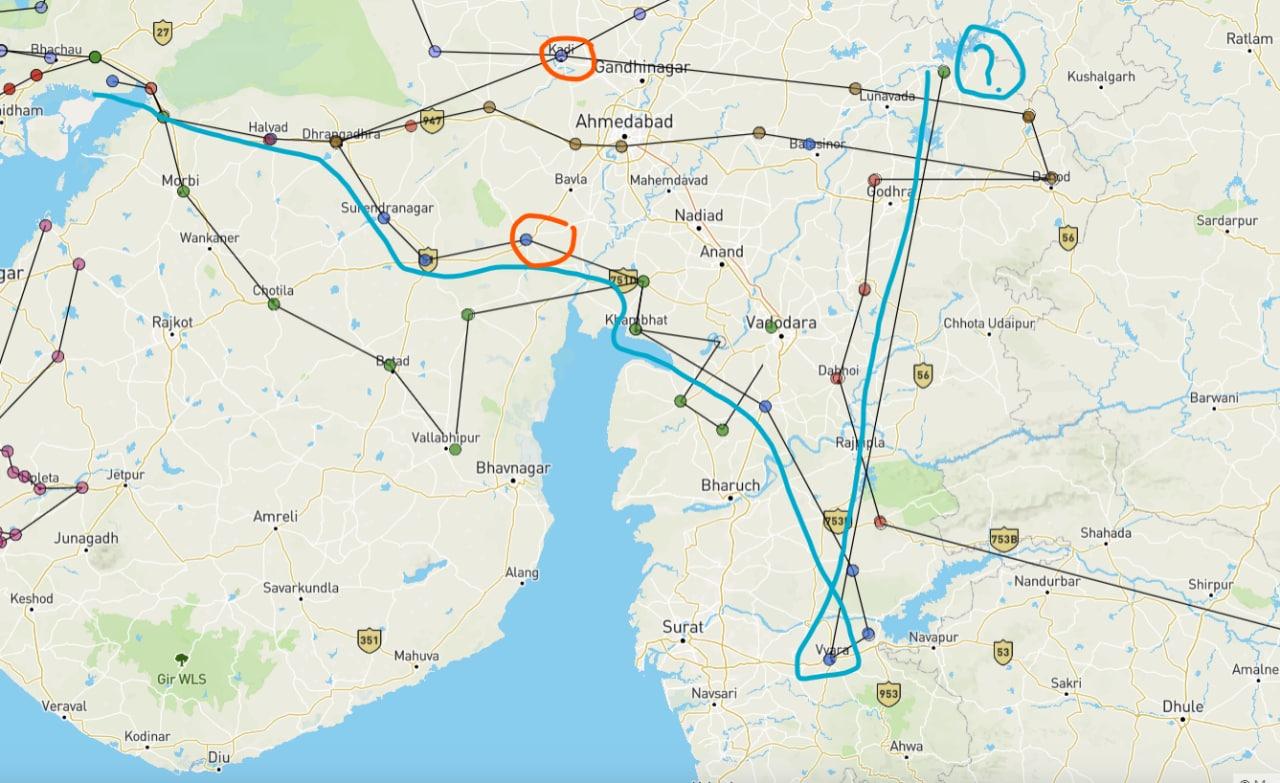Mapping Migratory Routes

Conducted in collaboration with the Center for Pastoralism (CfP), the endeavor was part of a larger initiative to analyze the impact of the pandemic on pastoralist livelihoods.
The project aimed to comprehensively illustrate and document the migratory routes of pastoralist communities across various regions of India.
Scope and Objectives:
The primary objective was to map out the migratory patterns of pastoralist communities in different states, including Gujarat, Uttarakhand, Jammu and Kashmir, Karnataka, Andhra Pradesh, Telangana, Tamil Nadu, and Leh. The project encompassed a diverse range of data sources, including research papers from CfP and firsthand accounts from Gopi Krishna of Mitan Handicrafts.
Workflow:
The project progressed through several phases, beginning with the identification of place names and their corresponding geographic coordinates. This involved extensive collaboration among team members and CfP researchers. Data was parsed into tabular format, with each sheet representing a distinct migratory path, detailing the communities utilizing these routes. Reverse geolocation searches were conducted to map place names to latitude and longitude coordinates, with manual verification and correction as needed. The mapped data was then imported into mapping platforms such as Mapbox and Google My Maps for visualization and further analysis. Feedback loops were established with CfP to ensure accuracy and iteratively refine the mapped routes.
Data Structure and Processing:
Data was structured within Excel sheets, with each sheet containing information on specific migratory paths, including names of places, associated communities, and route numbers. Place names were uniquely identified and geolocated, with attention given to proximity to adjacent locations in the route. Various methods were employed to identify places, including manual scrolling through maps, cross-referencing alternate names, and leveraging Google Sheets plugins for reverse geolocation queries.
Significance and Impact:
The project provided valuable insights into the migratory behaviors of pastoralist communities across India, shedding light on the diverse routes they traverse and the factors influencing their movements. By visualizing these routes, the project aimed to facilitate informed decision-making and policy interventions to support pastoralist livelihoods, particularly in the context of evolving environmental and socio-economic challenges.
Credits and Acknowledgments:
The success of the project was made possible through the collaborative efforts of the CfP team, associated researchers, and the Janastu Team, including Yatharth, Micah, Athithya, Shalini, Shafali, Bhanu, and Rishi. Special thanks to Gopi Krishna of Mitan Handicrafts for his invaluable contributions and expertise.
